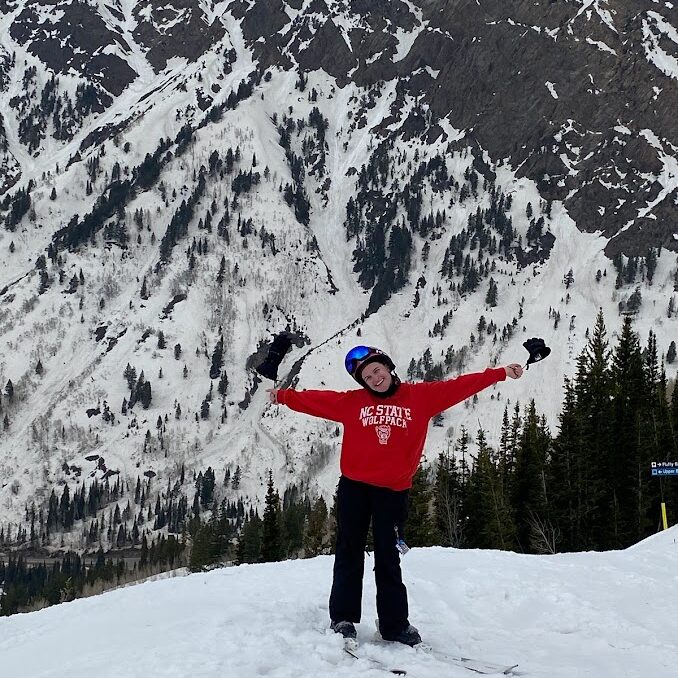Current Members
Director: Gary M. Lackmann, Ph.D.
Professor
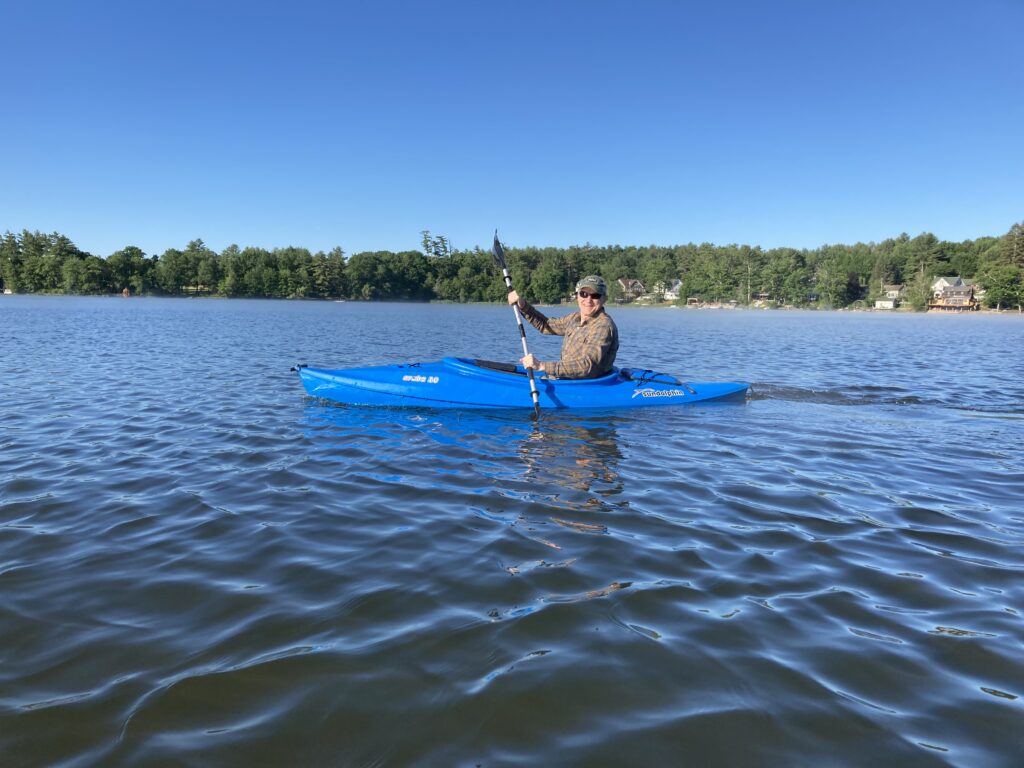
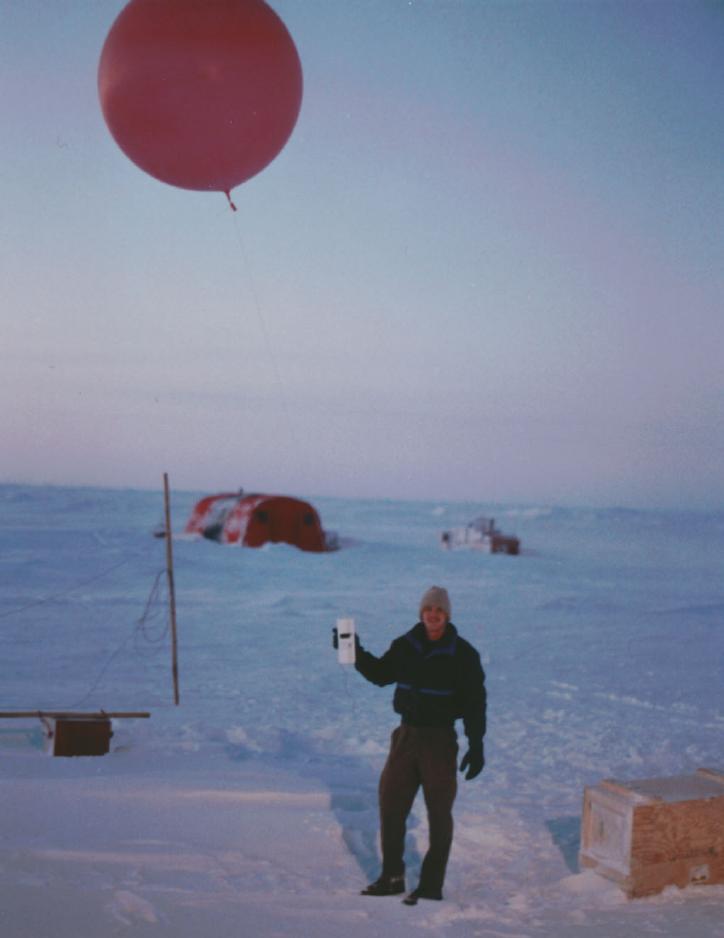
At first glance, my hometown of Seattle Washington is a meteorological bore. However, despite its reputation for extended periods of stratus and light rain, the meteorology of the Pacific Northwest is characterized by a rich influence of complex topography on active synoptic-scale weather systems. The weather extremes that captivated my interest as a child can result: 95-degree heat in the Seattle summer, rare but occasionally heavy winter snows, gusty winds during winter rainstorms, or thundery springtime occurrences of the Puget Sound Convergence Zone.
Even modest snow over the hilly terrain of Seattle, coupled with a lack of snow removal equipment, can bring the city to a standstill. The ability of nature to halt human activity is a continuing source of my fascination with weather. Indeed, the massive Pacific Northwest snows of January 1969 stand out as one of my earliest memories. Growing up, I would despair when a forecasted snowstorm failed to materialize; other times, I would celebrate the unexpected snow, marveling at the ability of nature to defy human attempts to predict it. I struggled to understand why forecasts that had sounded so confident could go awry. My interest in this topic continues to this day, and a primary focus of our research in this laboratory is to improve the understanding and forecasting of various meteorological phenomena, including winter weather. Having studied extreme weather for many years, extending this work into the realm of extreme weather and climate change was a logical direction.
In August 1999 I joined the Department of Marine, Earth, and Atmospheric Sciences at NCSU here in Raleigh. I teach graduate- and undergraduate-level synoptic-dynamic meteorology and numerical weather prediction. Recently, I have advised a group of up to seven graduate students, and also worked with several undergraduate researchers. However, I have recently taken on a leadership role as Department Head for the Department of Marine, Earth, and Atmospheric Sciences, so I am splitting time between research, teaching, and administrative responsibilities. For biographical details including where and with whom I have worked, and where I have studied, see my CV.
Current Graduate Students:
Cameron Masiello
(B.S. Meteorology & B.S. Applied Mathematics; University of Miami, May 2022)
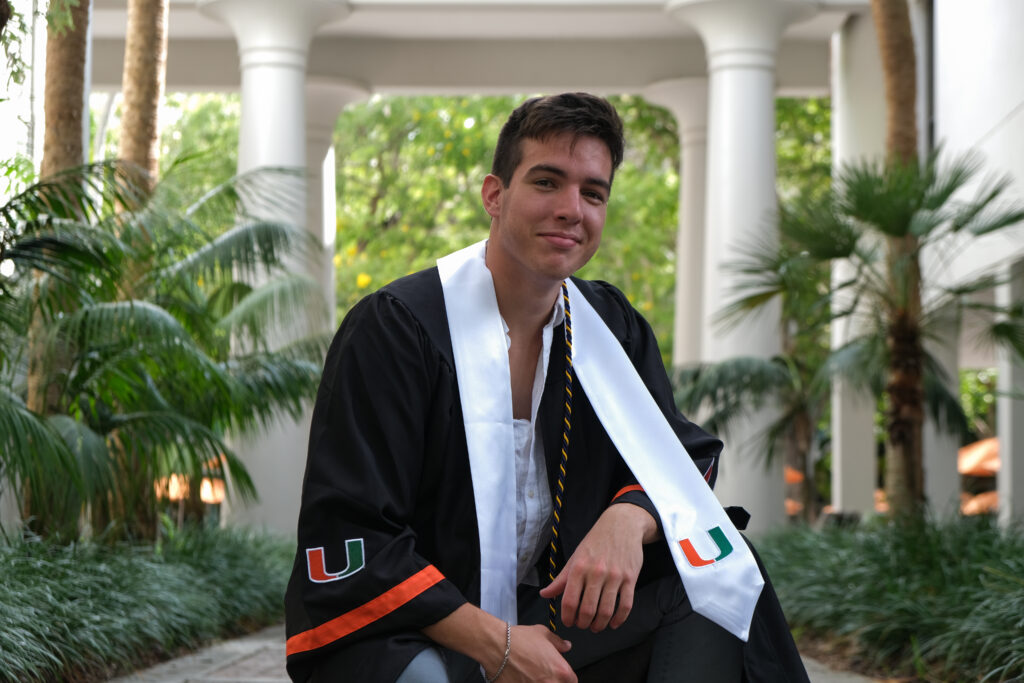
Cameron Masiello was born and raised in Albany, NY. Growing up he loved tracking the weather, specifically hurricanes, and played lacrosse and swam. Cameron then attended the University of Miami where he studied meteorology and applied mathematics. While at Miami, he started undergraduate research with Dr. Sharanya Majumdar studying the rapid intensifications of tropical cyclones, specifically under the Office of Naval Research (ONR) funded TCRI field campaign. Cameron is now a PhD student at NC State researching the inland decay of tropical cyclones and how these decay rates are anticipated to evolve in a warming climate. After finishing his PhD, he hopes to either work in the private sector with the aim at improving scientific communication of adverse weather, or work in Numerical Weather Prediction.
Katy Hollinger
(B.S. Atmospheric Science; University at Albany, SUNY, May 2020)

Katy Hollinger was born and raised in Lancaster, PA. Katy has been interested in weather since she was young, and spent many afternoons looking at the clouds or checking the temperature on her backyard weather sensor. Katy graduated from the University at Albany, SUNY with a B.S. with honors in Atmospheric Science and a minor in Emergency Preparedness, Homeland Security, and Cybersecurity in May 2020. She is now pursuing her Ph.D in Atmospheric Science, focusing on understanding how North Carolina hurricanes will change with climate change, specifically focusing on changes in their rainfall characteristics and associated flooding.
Amanda Sinning
(B.S. Atmospheric Science & B.S. Geography; University of Georgia, May 2022)
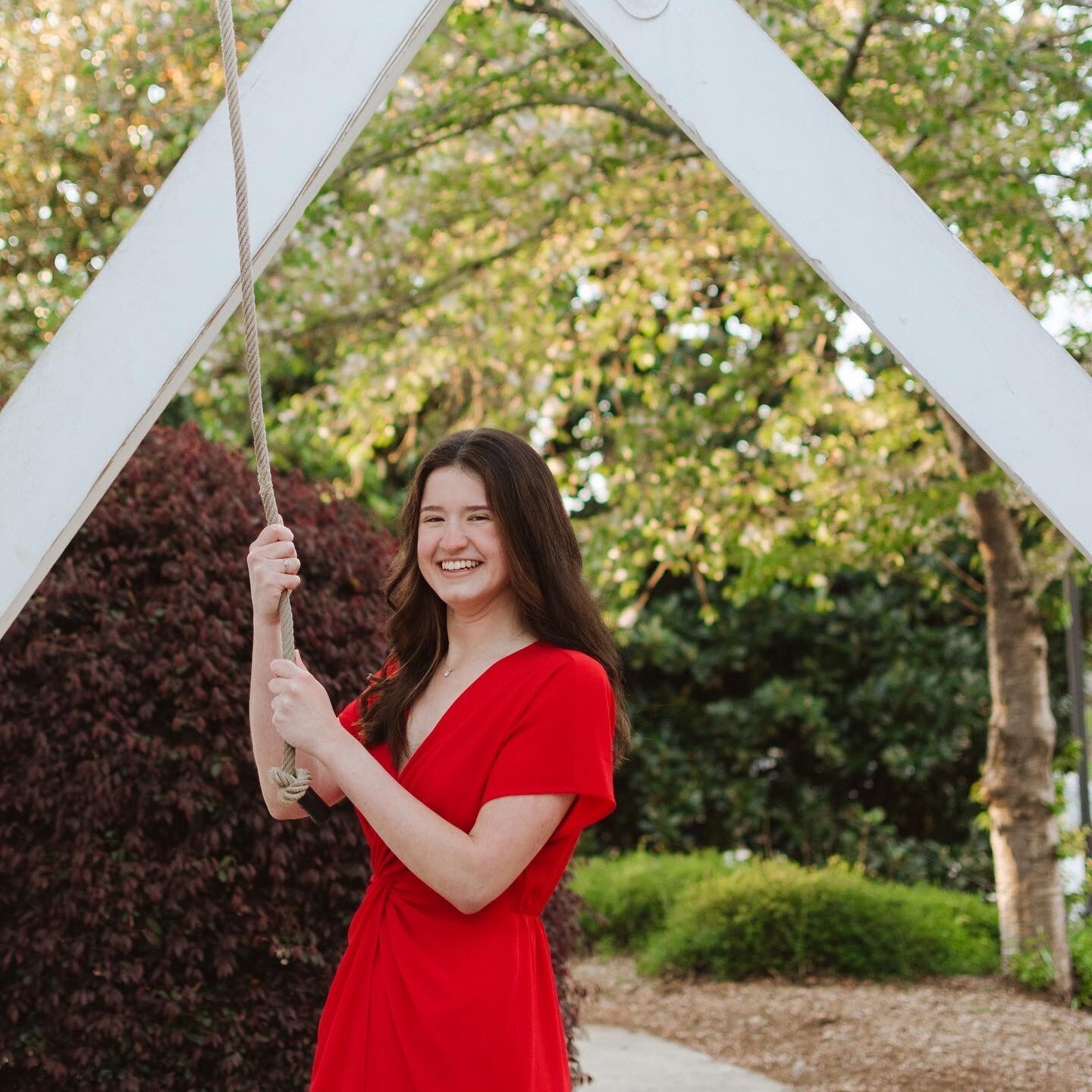
Amanda Sinning was born in Atlanta, Georgia, and grew up in both Cranberry Township, Pennsylvania and Suwanee, Georgia. She has loved weather for as long as she can remember, from reading books about hurricanes and tornadoes as a child to experiencing some of these fascinating (but equally scary!) weather phenomena for herself. She graduated from the University of Georgia (UGA) in May 2022 with a B.S. Atmospheric Sciences, B.S. Geography, and Certificate in Geographic Information Science (GIS). While at UGA, her fascination with hurricanes, orographic precipitation, and climate change was confirmed. She is now pursuing her M.S. in Atmospheric Science studying extreme rainfall produced by tropical cyclones interacting with the Appalachian Mountains, and how this will change in a future climate. After graduate school, she hopes to work in the National Weather Service (NWS) or private sector where she can help facilitate the research-to-operations transition in our field of study.
Sawyer Smith
(B.S. Meteorology; Metropolitan State University of Denver, May 2022)
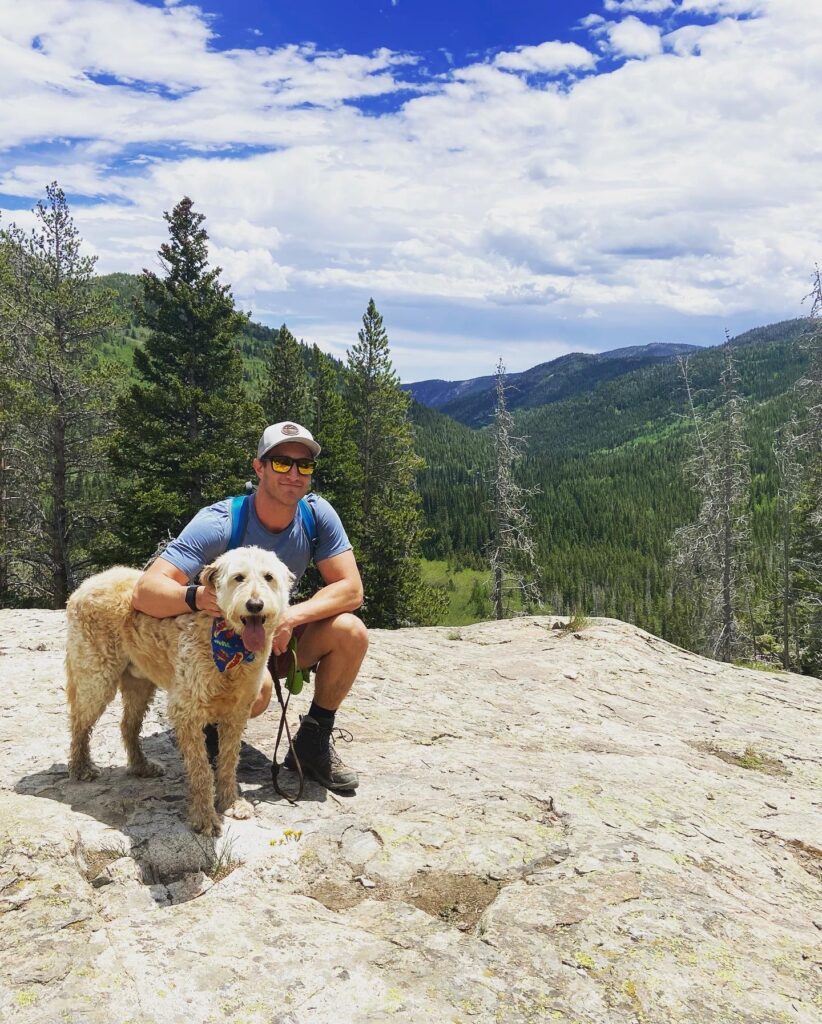
Sawyer was born in New Orleans, LA but grew up in Hickory, NC. As a child, Sawyer became consumed by severe weather after watching Twister for the first time. He has many memories of using his family’s camcorder to record extreme storms as they passed over his house. In 2016, Sawyer moved to Denver, CO where he eventually received a B.S. in Meteorology from MSU Denver. While in school, he worked at the National Center for Atmospheric Research and as an upper air observer for the National Weather Service. He is currently a PhD student and is focused on research related to atmospheric rivers.
Sawyer’s hobbies include watching and playing sports (go Braves!), hiking, cooking and trying new things!
Greta Easthom
(B.S. Atmospheric and Oceanic Science and B.A. Journalism; University of Maryland, May 2019)
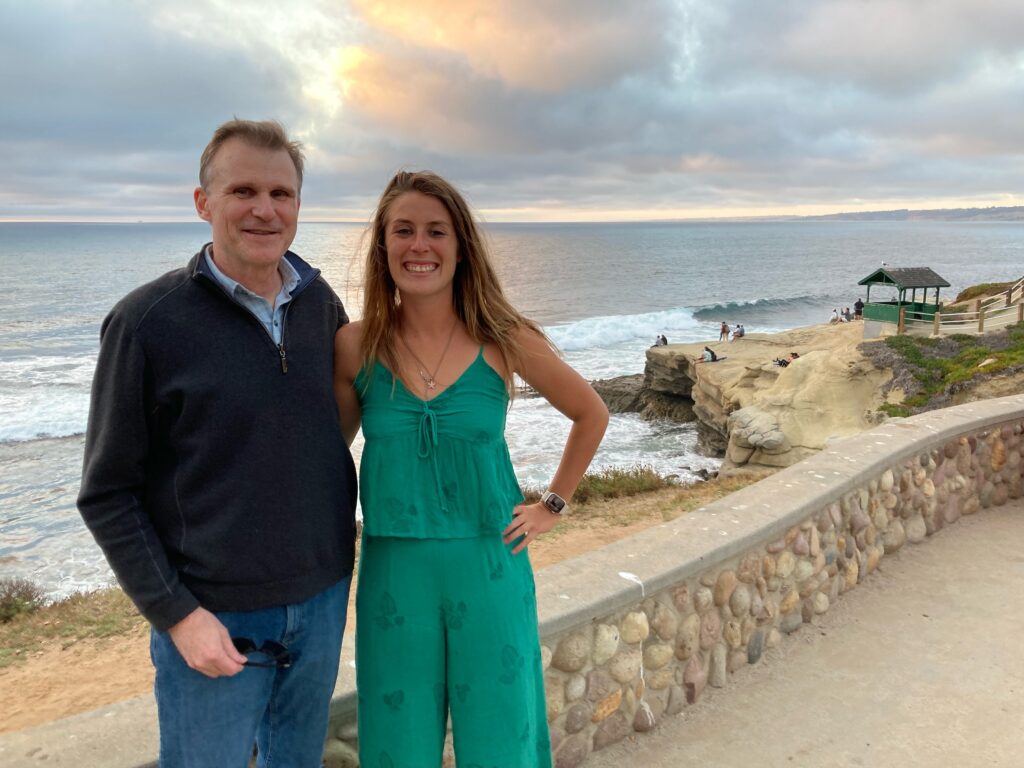
Growing up alongside the Chesapeake Bay in her hometown of Annapolis, Maryland, weather has always played a predominant role in Greta’s life whether it be in the form of monitoring afternoon beach thunderstorms or small craft advisories while out boating. However, it wasn’t until Greta’s freshman year at the University of Maryland when she took Dr. Ross Salawitch’s honors seminar on climate change that she realized she could study atmospheric science. An avid writer and recipient of a journalism scholarship, Greta had planned on majoring in multiplatform journalism but was persuaded to get both degrees once she realized the need for good science communication.
Since then, Greta has been able to combine both passions by receiving a USGS Southeast Climate Adaptation Science Center Global Change Fellowship for science communication her first year at NC State and publish articles in the Washington Post, Baltimore Sun, the Capital Gazette, and CBS News on topics such as extreme winter temperatures and coastal flooding effects from Hurricane Dorian.
Pictured above is when Greta and Gary attended the annual meeting for atmospheric rivers at the Center for Western Weather and Water Extremes where Greta gave a talk on her current research on improving the predictability of atmospheric rivers via an objective classification of the 30-year West-WRF Reforecast. She utilized the neural network of self-organizing maps (SOMs) to explore which patterns are better predicted than others. She also gave an update on her research at the Annual American Meteorological Society last year in Houston and plans to do so again in Denver this year! You can also catch her at various run clubs throughout Raleigh or as a member of the NC State track club. Email her at geastho@ncsu.edu for updates as she pursues her PhD in atmospheric science under Gary’s advisement and her research mentors at the Center for Western Weather and Water Extremes.
Morgan Bell
(B.S. Atmospheric Science & B.S. Geography; University of Georgia, May 2020)

Morgan was born in Chicago, IL but grew up in Kennesaw, GA. Her interest in meteorology began during her early childhood when she became terrified of severe storms. The fear further increased after finding out one of her neighbor’s grandparents lost their lives in a tornado. When her family moved to Kennesaw, Georgia her anxiety around weather worsen due to more frequent storms. She had reached a point when she would watch the Weather Channel so she would be certain if there was a storm approaching, hoping and praying that it would not be severe. As she grew older, she sought to conquer the very thing that kept her up at night. At UGA she became interested in tropical cyclone research after experiencing the remnants of Hurricane Irma (2017) and Hurricane Michael (2018). She is now pursuing a PhD, studying changes to tropical cyclone decay in a warming climate, specifically how winds will change post-landfall.
Lauren Getker
(B.S. Meteorology; North Carolina State University, December 2022)
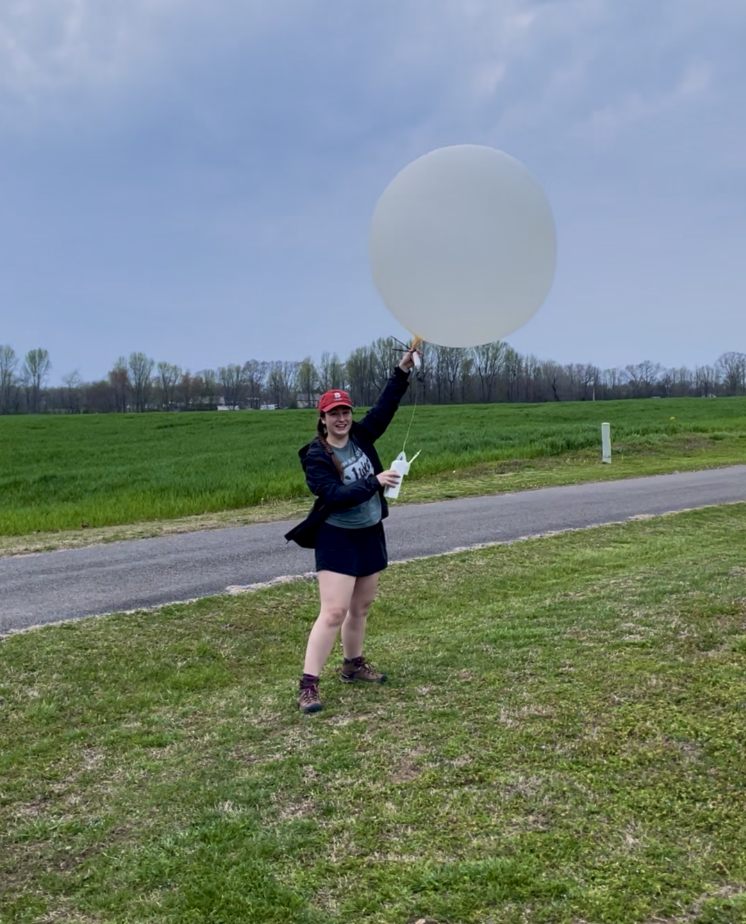
Lauren grew up near Tampa, Florida before moving to Raleigh at age 10 where she has lived since. Her interest in weather began with early memories of Hurricane Charley in 2004 which narrowly missed the Tampa area, leading to flooding and downed trees. Over the years she was fascinated by afternoon thunderstorms that rumbled across the South and occasional Raleigh winter storms. She earned her B.S. in Meteorology with a minor in Computer Programming from NC State in December 2022. As an undergraduate she conducted research on the impacts of climate change on Atlantic landfalling tropical cyclones. She is now pursuing her M.S. in atmospheric science where her research focuses on North American heat waves.
Current Undergraduate Students:
Cal Heaphy
(B.S. in Meteorology and B.A. in Chemistry; North Carolina State University, 2025)
Cal is originally from Buffalo, NY but has lived in Raleigh for over a decade now. She has loved weather and storms since early childhood and decided they wanted to become a meteorologist in the 2nd grade after meeting WRAL meteorologist Elizabeth Gardner. Cal is currently a junior studying Meteorology and Chemistry with an expected graduation date of Spring 2025. After she obtains her bachelor’s degree, Cal wants to pursue a Ph.D. in Atmospheric Science and continue to research severe weather with hopes of improving forecast accuracy and warning time. In her free time, Cal enjoys skiing, hiking, and watching sports (especially football, go Bills!).
